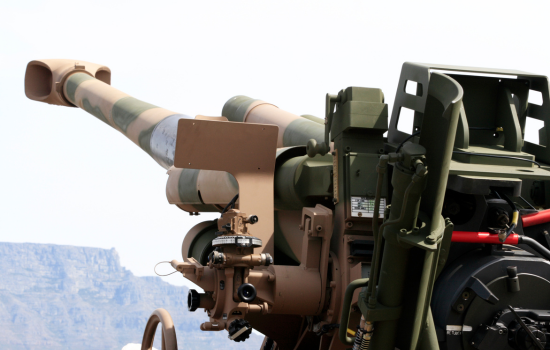Suicide Attack Against Shiite Mosque in Kuwait
At least 27 people have been killed and 227 others wounded in a suicide bombing that took place during Friday prayer at a Shiite mosque in Kuwait City. ISIS claimed responsibility for the attack,[1] which was the first attack on a Shiite mosque in Kuwait, where Sunnis and Shia have coexisted with minimal friction.[2]
A spokesman for Islamic State this week urged the militant group’s followers to step up attacks during the Islamic month of Ramadan.[3]
The attack in Kuwait is a new phase in ISIS’s campaign to destabilize the countries in the Arabian Peninsula (Saudi Arabia, Yemen) by promoting a sectarian war between Sunni and Shia.
Three weeks ago, the Kuwaiti Ministry of Interior said it raised the level of security around mosques following the bombings in neighboring Saudi Arabia.[4]
The Attack
A suicide bomber entered the Imam Sadiq Mosque, located in a busy area of Kuwait City’s al-Sawabir district. The bomb exploded when the mosque was packed with some 2,000 worshippers for Friday prayer. Friday midday prayer is typically the most crowded time of the week in a mosque, and attendance also increases during the holy Muslim month of Ramadan, which started last week. The attack killed at least 27 people and wounded 202 more, according to Kuwaiti security forces.
ISIS Claims Responsibility
The Islamic State of Iraq and Syria (ISIS) has claimed responsibility for the deadly attack. An ISIS affiliate calling itself the Najd Province, the same group that claimed responsibility for a pair of bombings on Shiite mosques in Saudi Arabia, said it was behind the attack.[5]
In a message posted on a Twitter account belonging to the group, ISIS claimed that the blast was the work of a suicide bomber wearing an explosive vest.
ISIS identified the bomber as Abu Suleiman al-Muwahed. They said that the targeted mosque was a “temple of the rejectionists” – a term used by the group to refer to Shiite Muslims.[6]
Kuwaiti media identified the bomber as Khaled Thamer Jaber Al Shammari, born in 1989.[7]
Kuwait’s Response
- Soon after the blast, Kuwait’s Emir Sabah al-Ahmad al-Jaber Al-Sabah visited the scene, located just a few buildings away from the country’s Ministry of Interior.
- The Kuwaiti cabinet went into an emergency meeting to discuss the incident and the Ministry of Interior raised the level of alert and mobilized all security forces.
- Kuwaiti media reported that several hospitals around the mosque announced a state of emergency.
- The Ministry of Interior stated it has launched a full investigation into the incident.
- Kuwaiti Prime Minister Sheikh Jaber al-Mubarak al-Sabah said that the suicide bombing was an attempt to threaten the country’s national unity. “This incident targets our internal front, our national unity,” Sheikh Jaber told Reuters after visiting the wounded at the Emiri hospital. “But this is too difficult for them and we are much stronger than that.”[8]
- Kuwait’s Minister of Justice, Awqaf and Islamic Affairs Yaqoub al-Sanea condemned the terrorist attack, stating, “[The attack] threatens our security, and aims to fracture the country’s unity. Kuwait will remain an oasis of security for all groups of Kuwaiti society and all sects. The government is taking many procedures to protect prayers and mosques.” [9]
Saudi Arabia
On May 22, 2015, a suicide bomber blew himself up during Friday prayer at a Shiite mosque in the village of al-Qadeeh in eastern Saudi Arabia, killing at least 21 and wounding 81 others. The bombing was the deadliest in the country in nearly a decade.[10]
The Islamic State (ISIS) claimed responsibility, stating that one of its suicide bombers carried out the attack using an explosives-laden belt at a mosque in Saudi Arabia’s Eastern Province of Qatif.[10]
On May 30, 2015, four people were killed in Dammam, a city in eastern Saudi Arabia, after a suicide bomber’s explosives detonated in the parking lot of a Shiite mosque. The Saudi Press Agency said the explosion occurred when the bomber was parking his car at the entrance of the Imam Hussein mosque in the port city, home to a large Shia population.[12]
ISIS later claimed responsibility for the attack. It said guards approached the car as the bomber was parking, and that the driver, disguised in women’s clothing, subsequently detonated the bomb. “Thank God, security authorities managed to foil a terrorist crime targeting worshippers,” the Saudi Press Agency said in a statement. It was unclear if the bomber was included among the four counted dead.
Yemen
In Yemen, Islamic State (ISIS) claimed responsbility for a bombing at a Houthi mosque in the capital Sanaa on Friday, May 22, 2015. According to a security source, at least 13 people were wounded in the attack.
ISIS said via Twitter that it was behind the explosion, Reuters reported. “If there was an explosion it has already happened in Sanaa in the people’s district in a Houthi mosque. The Islamic State claims responsibility,” the group said in the post.[13]
Summary
Kuwait is a member of the U.S-lead coalition against the Islamic State and is therefore considered an enemy of ISIS. The attack on the Shiite mosque should be considered as retaliation against a sensitive target of the Kuwaiti regime.
Nearly a year has passed since ISIS leader Abu Bakr al-Baghdadi declared the Islamic State Caliphate on June 29, 2014, the first day of Ramadan last year. ISIS is likely marking the anniversary through a worldwide terror campaign. The blast in Kuwait came on the same day as other terror attacks:
- Dozens of people, mostly foreigners, were shot dead in an attack on a beach in the Tunisian resort town of Sousse.
- A man was decapitated and several others injured at a factory in France.
The terror attacks were conducted in three continents (Europe, Asia and Africa) against Westerners (Franch and Tunisian tourists), the pro – Western regimes of Tunisia and Kuwait, and a Shiite target (Kuwait).
For decades, Kuwait has been among the safest and quietest places in the Middle East. It suffered an invasion under former Iraqi leader Saddam Hussein in the first Gulf War (1990 – 1991), but has not traditionally been a target of terrorist attacks.[14]
It was the first attack targeting Kuwaiti Shiites, who make up approximately one-third of the country’s native population of 1.3 million people. The sectarian strife between Shia and Sunni groups has generally been low in Kuwait.
This is not the first time ISIS has attacked a Shiite mosque in the Arabian Peninsula. ISIS has claimed responsibility for bombings at two different Shiite mosques in Saudi Arabia and at a mosque in Yemen. The attack in Kuwait is therefore a part of ISIS’s strategy to tip the whole region ablaze in a sectarian war.
The attack on Shiite targets in Kuwait and Saudi Arabia served three goals of the Islamic State: to attack the “heretical Shiite enemy”, attack the Kuwaiti and Saudi regimes, and to create tension between Kuwait, Saudi Arabia and the Iranian-led Shia alliance (which includes Hezbollah, Houthis and Shiite communities around the world).
Notes
[1] Hassan al Qatari. ISIS Affiliate Hits Shiite Mosque in Kuwait, Killing 27. ABC NEWS, June 26, 2015.
[2] ISIL claims responsibility for Kuwait Shia mosque blast. Al Jazeera. June 26. 2015.
[3] Kuwait Shia mosque blast death toll ‘rises to 25’. BBC News. June 26, 2015.
[4] Daesh claims responsibility for mosque explosion in Kuwait. Gulf News. June 27, 2015.
[5] Kuwait Shia mosque blast death toll ‘rises to 25’. BBC News. June 26, 2015.
[6] Staff writer. 27 killed in ISIS attack on Kuwait mosque. Al Arabiya News. June 26, 2015.
[7] Daesh claims responsibility for mosque explosion in Kuwait. Gulf News. June 27, 2015.
[8] Staff writer. 27 killed in ISIS attack on Kuwait mosque. Al Arabiya News. June26, 2015.
[9] ISIL claims responsibility for Kuwait Shia mosque blast. Al Jazeera. June 26. 2015.
[10] Suicide blast kills 21 at mosque in Saudi Arabia. Al Arabiya. May 22, 2015.
[11] ISIL claims responsibility for Saudi mosque attack. Al Jazeera. May 22, 2015.
[12] Deaths in blast near Shia mosque in Saudi city. Al Jazeera. May 30, 2015.
[13] ISIS claims responsibility for Shiite mosque bombing in Yemen. Fox News. May 22, 2015.
[14] Hassan al Qatari. ISIS Affiliate Hits Shiite Mosque in Kuwait, Killing 27. ABC NEWS, June 26, 2015.
The views expressed in this publication are solely those of the author(s) and do not necessarily reflect the views of the International Institute for Counter-Terrorism (ICT).






